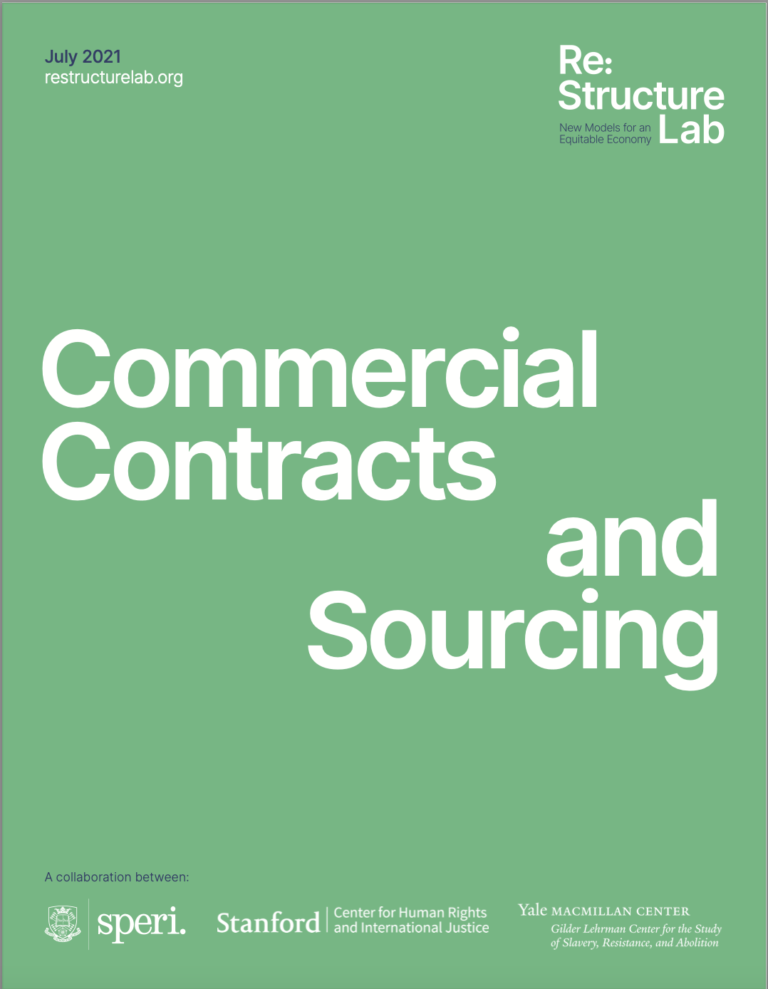This work is part of a series of Forced Labour Evidence Briefs that seek to bring academic research to bear on calls to address the root causes of the phenomenon in global supply chains and catalyse systemic change. To do so, the briefs consolidate evidence from recent academic research across several disciplines, including political science, law, sociology, business and management, identified through literature reviews in Web of Science and other academic databases. At a critical moment when COVID-19 has led to an increased focus on conditions in global supply chains and growing calls for systemic change, these briefs seek to inject new knowledge from academic research into ongoing debates about how practical reforms can be achieved. They focus on six themes: mandatory human rights due diligence and transparency legislation; commercial contracts and sourcing; investment patterns and leverage; the labour share and value redistribution; ethical certification and social auditing; and worker debt. Each brief presents new ideas and examples of how business models and supply chains can be restructured to promote fair, equitable labour standards and worker rights.

